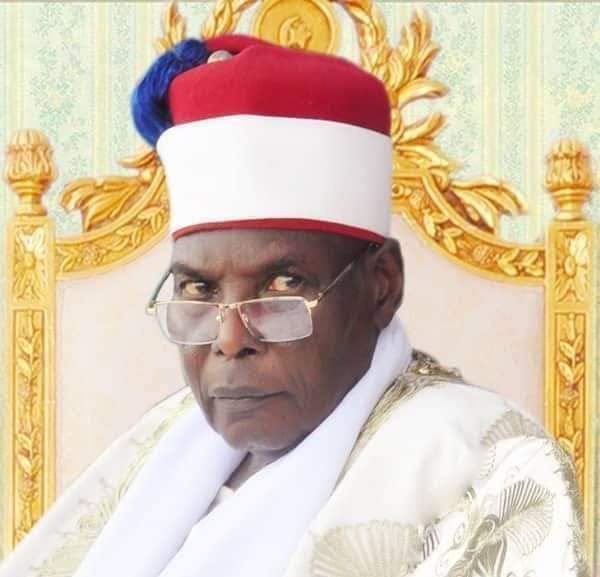Abba Tor Shehu Masta II: The Prince who waited
Abba Tor Shehu Masta II, the Shehu of Dikwa, who died two weeks ago, was a prince who made a name in the public service while patiently waiting for one of the thrones of his illustrious ancestors. His father, Shehu Masta II, was the Shehu of Dikwa (1937-56) who had to move his headquarters southwards, […]

Late Shehu of Dikwa
Abba Tor Shehu Masta II, the Shehu of Dikwa, who died two weeks ago, was a prince who made a name in the public service while patiently waiting for one of the thrones of his illustrious ancestors. His father, Shehu Masta II, was the Shehu of Dikwa (1937-56) who had to move his headquarters southwards, from Dikwa to Bama for the administrative convenience of our British overlords. Some readers may recall that in closing years of the 19th Century the turbulence visited upon the Borno kingdom by the warlord, Rabeh Al Zubeir, had decimated it and caused lots of social havoc. Part of the havoc was the desecration of the capital, Kukawa, and the emergence of Dikwa as the new capital of Borno and, the usurper, Rabeh, its sovereign.
- FG to repatriate 4,982 Borno refugees in Cameroon
- Herdsmen carisis: Address nation now, Soyinka tells Buhari
When, eventually, at the turn of that century Rabeh was eventually routed at Kousseri, now in Cameroon Republic, and killed by the French, the old order was restored and Shehu Umar Garbai was installed in 1902. In due course Shehu Garbai found Dikwa unsuitable and for other practical reasons, moved his palace to Monguno and finally to Maiduguri in 1907. When Shehu Garbai left Dikwa, the Germans, who were occupying Dikwa at that period, installed his brother Sanda Mandarama as Shehu who was later succeeded by Sanda Kyarimi. It was when Sanda Kyarimi became Shehu of Borno that Abba Tor’s father, Shehu Masta II became Shehu of Dikwa. Abba Tor was born in the palace in Bama and spent most of his early life there. He pursued a teaching career starting as a teacher in his alma mater, Bama Central Primary School, and eventually rising to be its headmaster. He went for further courses in law and local government administration and on return in 1979 was made secretary of Ngala Local Government.
I first met him on that beat. I was then an administrative officer with the Chad Basin Development Authority and had, as part of my schedule, serving as secretary of the committee to launch the South Chad Irrigation Project (SCIP) II The Project, then arguably Nigeria’s biggest irrigation scheme was due to be launched in July 1979 by the Head of State General Olusegun Obasanjo in New Marte. Abba Tor as Secretary of Ngala Local Government, one of the catchment areas of the project, represented the council on the committee. Throughout the months of deliberations, I kept an eye on him. I found him a supremely articulate young man whose views and knowledge of the area contributed immensely to the success of the committee.
It was no wonder that after the elections that same year he was named as Commissioner for Information by the new Governor, Mohammed Goni. Abba became the face and voice of that administration throughout its tenure. He was clamped into detention along with all his colleagues, who held political offices, by the new military government headed by General Muhammadu Buhari. When Abba was released after the Buhari regime was shoved off he was quickly reabsorbed into the Borno State Civil Service and was posted to Borno State Agricultural Development Programme (BOSADP) as Head of Administration Department. He readily settled himself again as a humble civil servant. A few years later in 1989, the Shehu of Dikwa died. Obviously at that time Abba Tor was a one of the most eligible contestants, with an impressive resume of public service and pedigree. I happened to be the desk officer that year in the Governor’s Office where I was posted as Permanent Secretary, Political, and watched the events unfolding within the arena. Though he lost out, Abba Tor appeared unruffled and went to pay his allegiance to the new Shehu.
As Providence would have it a new Military Governor, Group Captain Ibrahim Dada, arrived on the scene in 1994 and picked Abba Tor as his Commissioner for Works, Housing, Lands and Survey. And for the second time Abba Tor was back in the Borno State Executive Council with far greater responsibilities. But the ambition of every prince is to sit on the throne of his ancestors. The opportunity arrived at his feet literally out of the blues. The government of Ali Modu Sherriff had in its wisdom decided in 2009 to create two emirates out of Dikwa: Bama Emirate comprising only Bama Local Government and Dikwa Emirate taking the larger share of Ngala, Kala Balge and Dikwa Local governments.
Abba Tor was named Shehu of Dikwa with the added recognition as the Deputy Chairman of Borno State Traditional Rulers Council. At last he had stepped into his father’s shoes and also returned to the same palace where his father had his first appointment. Of course his tenure had been tumultuous with the upheaval of Boko Haram that had blighted most parts of Borno State. For most of the period he had to move his palace to Maiduguri and operate from there. I spoke to him a number of times in the last few years as His Royal Highness had followed this column with keen interest and would always have an opinion and a fresh perspective on most subjects I covered.
He will be greatly missed.
